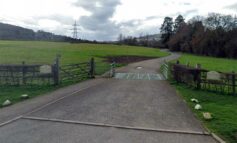A spare £786,000 of unspent public money from the West of England will go towards the combined authority’s reserves rather than spending on buses.

Despite many bus services in the region facing closure, amid a funding crisis, the unspent money from the West of England combined authority’s (WECA) budget last year will be put into savings.
Last month the region’s council leaders agreed to an emergency deal to save several bus routes.
But now council leaders have slammed the recent decision to pocket last year’s underspend, money which would give “a great deal of reassurance” to the region’s bus network. West of England mayor Dan Norris suggested councils could spend their own reserves on buses.
South Gloucestershire Council leader Toby Savage called for the surplus cash to be spent on supporting buses and protecting rural routes, rather than putting that money into the reserves, at a combined authority meeting on 1st July in Midsomer Norton. But his motion was voted down.
He said: “WECA needs to strain every sinew to protect bus services. We agreed at our previous extraordinary meeting that we would leave no stone unturned as we sought to provide the maximum possible resources to be able to support our bus network in the face of very significant challenges. [The surplus money] would provide a great deal of reassurance and resilience to the bus network, and so I think it’s about choices at the end of the day.”
Backing his calls was Kevin Guy, council leader for Bath and North East Somerset, who said: “It seems quite bizarre having an extraordinary meeting not too long where we worked really hard together to find funding for buses.
“And now we’re putting £700,000 into a reserve pot for a rainy day, when we’ve got real issues to deal with today with rural connectivity and buses. Buses are at risk and yet WECA is sitting on literally millions of money in reserves.”
However, WECA has fewer reserves than each of the region’s three councils, standing at about £2 million, Mr Norris said. He claimed South Gloucestershire Council bosses were “cheapskates” who spend less than other councils in combined authority areas on buses.
Speaking after the meeting, Mr Norris said: “The economy is in the worst place for 40 years, so we have a greater duty than ever before to ensure we keep reasonable reserves to cover the growing risks.
“South Gloucestershire Council are cheapskates when it comes to supporting buses, spending much less per head on the transport levy than most other councils that have combined authorities.”
Each of three West of England councils chips in millions every year for Weca’s transport budget, including spending on buses.
North Somerset Council contributes as well. Last year, Bath and North East Somerset paid £5 million, Bristol paid £10 million, South Gloucestershire paid £4 million, and North Somerset paid £1.7 million.
Prices to run bus services are shooting up, as inflation increases the cost of fuel and salaries. Several rural services in the West of England are at risk of closure, as the income they raise through fares is far less than the cost to run the routes, causing a heavy cost to the taxpayer.
Last month at an emergency meeting, Mr Norris and the three council leaders thrashed out a last-minute deal to find extra funding.
Also speaking after the 1st July meeting, Cllr Savage said: “It’s unbelievably disappointing that the WECA mayor has reneged on the bus funding deal agreed after protracted negotiations with all council leaders barely a fortnight ago in Bath. The ink is barely dry on that agreement we thought we had.
“We should be doing everything possible to protect bus services, not squirrelling away taxpayers’ money into mystery reserves.
“This extra £700,000 could have made a real difference in providing reassurance to bus passengers in the months ahead, but the WECA mayor has blocked this.”
Alex Seabrook, Local Democracy Reporter



